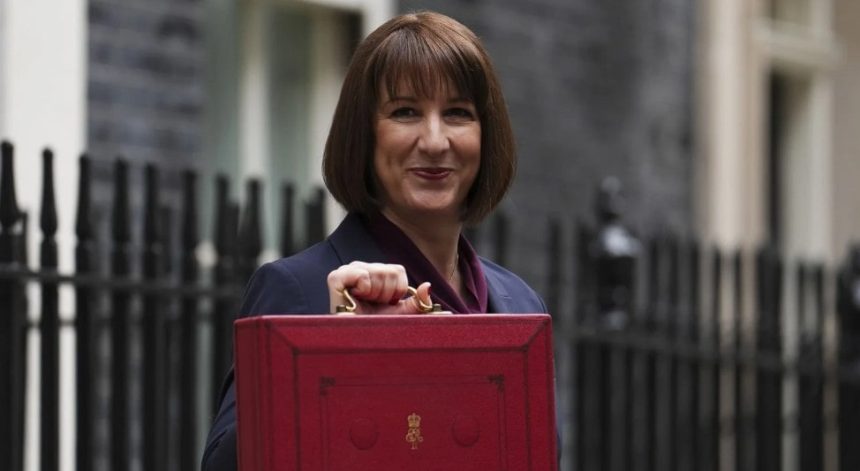Rachel Reeves is set to widen the Government’s benefit fraud crackdown as she works to bring in an extra £1.2 billion ahead of this week’s Budget.
With the Chancellor under increasing pressure to steady the country’s finances, this fresh push on fraud and inaccurate claims forms part of a broader effort to tighten up the welfare system.
The move comes as Reeves is expected to abolish the two-child benefit cap, a long-debated policy that has shaped much of the welfare conversation in Britain.
Scrapping it could bring the Treasury further than £3 billion, a figure that demands serious balancing away in her financial plans.
Combined with slow profitable growth and stubborn affectation, Reeves is having to put together a Budget that keeps her spending pledges without overwhelming the public purse.
A similar squeeze on revenue options was highlighted recently when Reeves was reported to be weighing a possible 2p income tax rise.
Targeted Reviews to Expand
A major part of this strategy is an expansion of targeted case reviews within Universal Credit. These checks aim to identify errors, unresolved claims, or deliberate welfare fraud.
Officials believe that by extending the programme, the Government can recover or prevent around £1.2 billion in losses by March 2031.
Reeves is also weighing up new property tax measures. Reports suggest she could introduce a levy on homes worth more than £2 million, a move that may pull in between £400 million and £450 million.
Around 2.4 million properties in the highest council tax bands would be revalued to determine who falls under this new charge.
Importantly, homeowners would be allowed to defer the payment until moving house or passing on the property, reducing the risk of forcing people to sell up.
A Patchwork of Revenue Raisers
With Reeves ruling out a rise in income tax rates, attention has turned to a series of smaller but impactful revenue changes.
These include the possibility of a pay-per-mile road tax for electric vehicles and limits on how generous salary-sacrifice pension schemes can be before workers must pay national insurance contributions.
The Chancellor is also expected to confirm that the triple lock on state pensions remains in place, meaning 13 million pensioners will receive an above-inflation rise next April. While popular with older voters, the decision adds further strain on the public finances.
An extension of the freeze on income tax thresholds is another option being discussed. This form of “fiscal drag” quietly raises billions by pulling more workers into paying tax or pushing existing taxpayers into higher bands as wages rise.
Although subtle, it is one of the most powerful tools in the Treasury’s kit.
Criticism From Across the Political Spectrum
The reaction has been swift. Former Conservative chancellor Sir Mel Stride accused Reeves and Labour of increasing welfare spending at the cost of ordinary workers.
Writing in, he said: “Yet that is exactly what Labour looks set to deliver at the Budget: a multibillion-pound welfare splurge funded by stealth taxes on people who are already struggling.”
Stride argued that the Conservatives were the only party prepared to keep welfare spending under control, warning that any tax rises announced this week would be a direct result of Labour’s political choices.
The Liberal Democrats have also criticised the potential freeze in tax thresholds, calling it “rank hypocrisy” and accusing both Labour and the Conservatives of a “stealth tax stitch-up”.
They estimate that extending the freeze for another two years could push 1.3 million more people into paying income tax or into the higher rate. This would come on top of the 7.7 million workers already expected to be affected under the existing Conservative freeze.
Lib Dem deputy leader Daisy Cooper said: “A staggering nine million people are now set to be hit by the Conservative, Labour stealth tax stitch-up.” She added that many families are simply tired of being squeezed for “their hard-earned cash”.
Fiscal Experts Weigh In
Economists have also entered the debate. Helen Miller from the Institute for Fiscal Studies warned that extending the income tax threshold freeze would “break the letter” of Labour’s manifesto.
She pointed out that freezing national insurance thresholds at the same time would effectively raise both taxes, a move that could easily be read as contradicting Labour’s pledge not to raise national insurance.
Her comments add further pressure on Reeves as she attempts to walk the tightrope between political promise and economic practicality.
A Tightrope Budget
Rachel Reeves faces one of the most gruelling early Budgets of any ultramodern Chancellor. She must show that Labour can govern responsibly while still delivering on its social pledges.
With the UK facing weak productivity, rising pension costs, and long-standing demands for public service investment, every decision in this week’s statement will carry weight.
For millions of households, from benefit claimants to workers, homeowners to pensioners, the choices made by Reeves will shape their finances for years to come.
And with so many moving parts in the Budget, one thing is clear: the Chancellor is under intense pressure to make every pound count.






